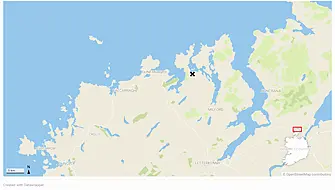A policeman abused his professional position by producing a warrant card during a private dispute about a road accident involving his father, a watchdog has found.
Northern Ireland Police Ombudsman Marie Anderson made the finding after investigating the circumstances of a confrontation between the officer and a motorist near Downpatrick, Co Down.
The incident unfolded after the driver was involved in a collision with the policeman’s father.
The motorist complained to the ombudsman that the officer had tried to “bully” him into admitting liability for the crash.
He claimed that, shortly after the collision, the policeman and his father went to speak to him at an address near Downpatrick where he was working.
The complainant alleged that the officer demanded he admit liability for the crash.
He said that, while the officer did not identify himself as working for the police during that encounter, he said he returned the following day and confronted him in an “aggressive and intimidating” way.
Police officer "abused professional position" over traffic collision. https://t.co/1LSI9Qj8Gr pic.twitter.com/Th4dBFkjxU
— Police Ombudsman NI (@PONIPressOffice) October 28, 2021
The motorist said the policeman produced his warrant card on that occasion and threatened to have him arrested for dangerous driving if he did not admit liability.
He claimed the officer also referred to a previous traffic incident in which the complainant had been involved.
When the ombudsman investigated, the officer’s supervisor in the PSNI said he had already spoken to him about the incident, and he had accepted it had been inappropriate to have produced his warrant card and effectively placed himself on duty.
Despite the supervisor telling the officer not to make any further contact with the man, he visited him again the following day.
The officer said he only did so to apologise for any alarm he had caused by identifying himself as a policeman.
Asked about the incident by ombudsman investigators, the officer denied that he had threatened to have the man arrested or had acted aggressively.
He also denied inappropriately accessing information about the driver or collision on police systems, and the ombudsman found no evidence that he had done so.
Ms Anderson concluded that, by placing himself on duty while dealing with a private matter, the officer had abused his professional position.

She recommended disciplinary action be taken against him.
Disciplinary decisions are made by the PSNI’s Professional Standards Department.
The PSNI decided to take no further action against the officer because the issue had already been dealt with when he initially admitted what he had done to his supervisor.







